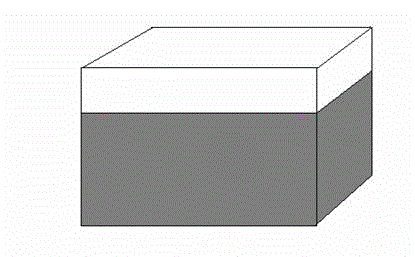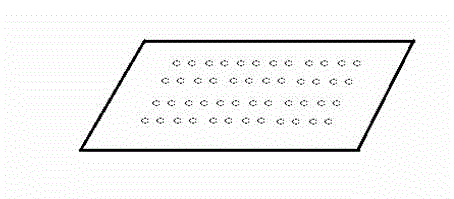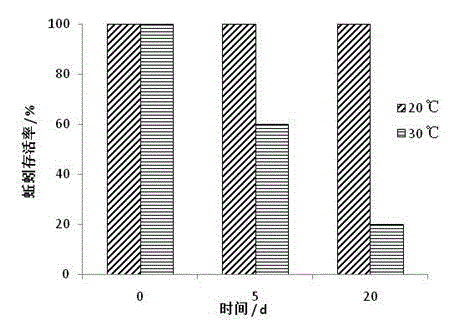Method for cultivating earthworms for experiment
A breeding method and experimental technology, which is applied in animal husbandry and other fields, can solve problems such as poor parallelism, influence of laboratory environment, and complex operation of the method, and achieve the effect of maintaining quantity and activity, occupying a small space, and simple operation
- Summary
- Abstract
- Description
- Claims
- Application Information
AI Technical Summary
Problems solved by technology
Method used
Image
Examples
Embodiment 1
[0025] Example 2
[0026] The earthworm that raises with this method carries out earthworm survival rate experiment, and culture condition is the same as embodiment 1, just tests the survival rate of earthworm under different temperatures, and the result can be seen image 3 .
Embodiment 2
[0028] The earthworms bred by this method are used for the accumulation and degradation kinetics research experiment of pentachlorophenol in the soil in the worms of William's coelomus. In each jar, 100 g of soil and 6 earthworms, about 2 g each, were used in the experiment. In addition to not throwing in bait, all the other conditions were the same as in Example 1. The results showed that after 40 days, the activity of the earthworms used in the experiment was comparable to that of the freshly collected earthworms in the field, and the body weight did not change significantly. See the attached Figure 4 And attached Figure 5 .
Embodiment 3
[0030] Breeding box is with embodiment 1. Earthworms are dug from the wild and used as worm species.
PUM
 Login to View More
Login to View More Abstract
Description
Claims
Application Information
 Login to View More
Login to View More - R&D
- Intellectual Property
- Life Sciences
- Materials
- Tech Scout
- Unparalleled Data Quality
- Higher Quality Content
- 60% Fewer Hallucinations
Browse by: Latest US Patents, China's latest patents, Technical Efficacy Thesaurus, Application Domain, Technology Topic, Popular Technical Reports.
© 2025 PatSnap. All rights reserved.Legal|Privacy policy|Modern Slavery Act Transparency Statement|Sitemap|About US| Contact US: help@patsnap.com



